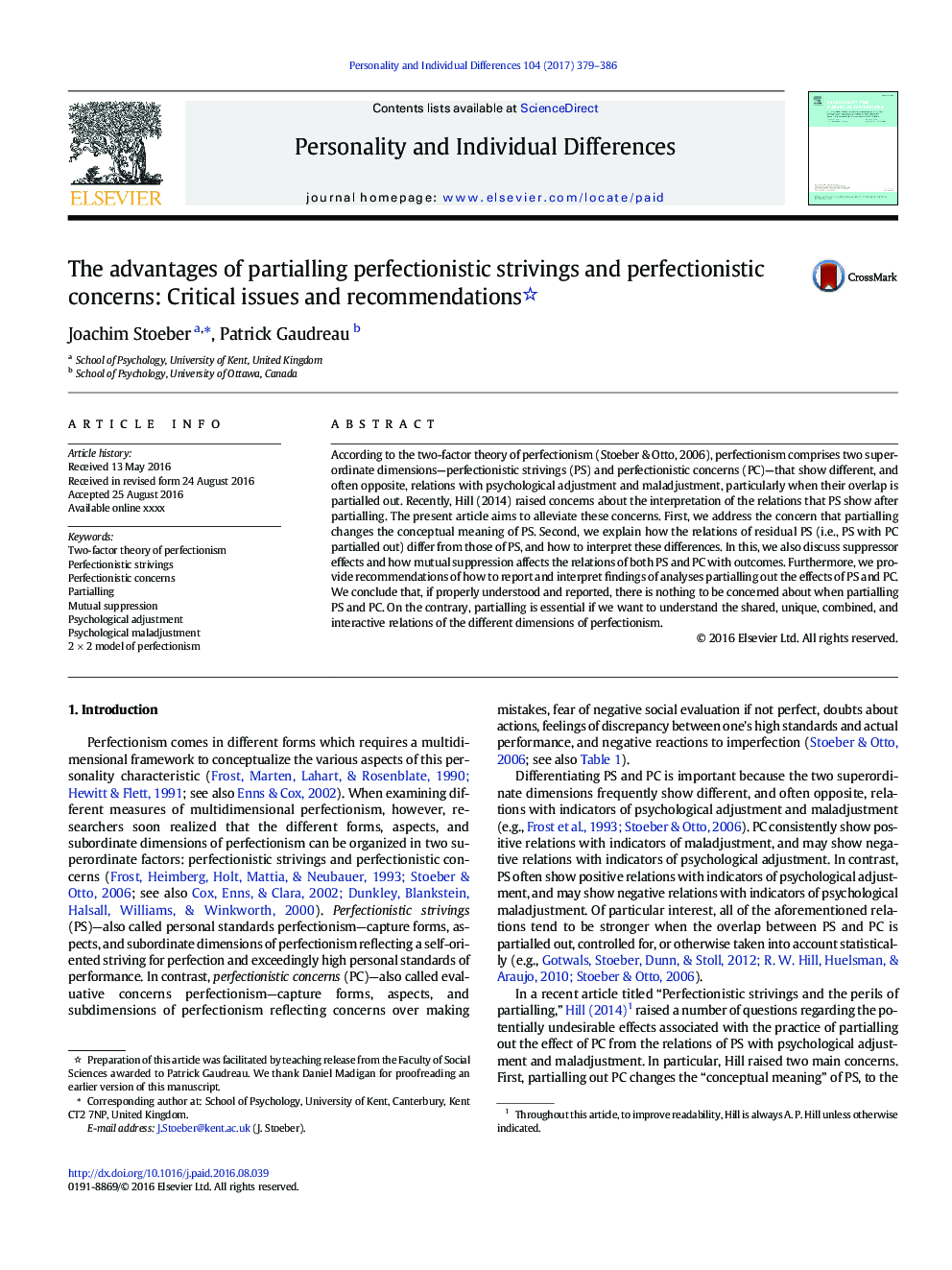| کد مقاله | کد نشریه | سال انتشار | مقاله انگلیسی | نسخه تمام متن |
|---|---|---|---|---|
| 7249399 | 1472014 | 2017 | 8 صفحه PDF | دانلود رایگان |
عنوان انگلیسی مقاله ISI
The advantages of partialling perfectionistic strivings and perfectionistic concerns: Critical issues and recommendations
ترجمه فارسی عنوان
مزایای استفاده از تلاش های کمال گرا و نگرانی های کمال گرا: مسائل انتقادی و توصیه ها
دانلود مقاله + سفارش ترجمه
دانلود مقاله ISI انگلیسی
رایگان برای ایرانیان
کلمات کلیدی
تئوری دوگانه کمال گرا، تلاش های تکاملی نگرانی های تکاملی، توزیع، سرکوب متقابل، تنظیم روانشناختی، ناسازگاری روانشناختی، 2 Â · Â 2 مدل کمال گرا،
موضوعات مرتبط
علوم زیستی و بیوفناوری
علم عصب شناسی
علوم اعصاب رفتاری
چکیده انگلیسی
According to the two-factor theory of perfectionism (Stoeber & Otto, 2006), perfectionism comprises two superordinate dimensions-perfectionistic strivings (PS) and perfectionistic concerns (PC)-that show different, and often opposite, relations with psychological adjustment and maladjustment, particularly when their overlap is partialled out. Recently, Hill (2014) raised concerns about the interpretation of the relations that PS show after partialling. The present article aims to alleviate these concerns. First, we address the concern that partialling changes the conceptual meaning of PS. Second, we explain how the relations of residual PS (i.e., PS with PC partialled out) differ from those of PS, and how to interpret these differences. In this, we also discuss suppressor effects and how mutual suppression affects the relations of both PS and PC with outcomes. Furthermore, we provide recommendations of how to report and interpret findings of analyses partialling out the effects of PS and PC. We conclude that, if properly understood and reported, there is nothing to be concerned about when partialling PS and PC. On the contrary, partialling is essential if we want to understand the shared, unique, combined, and interactive relations of the different dimensions of perfectionism.
ناشر
Database: Elsevier - ScienceDirect (ساینس دایرکت)
Journal: Personality and Individual Differences - Volume 104, January 2017, Pages 379-386
Journal: Personality and Individual Differences - Volume 104, January 2017, Pages 379-386
نویسندگان
Joachim Stoeber, Patrick Gaudreau,
